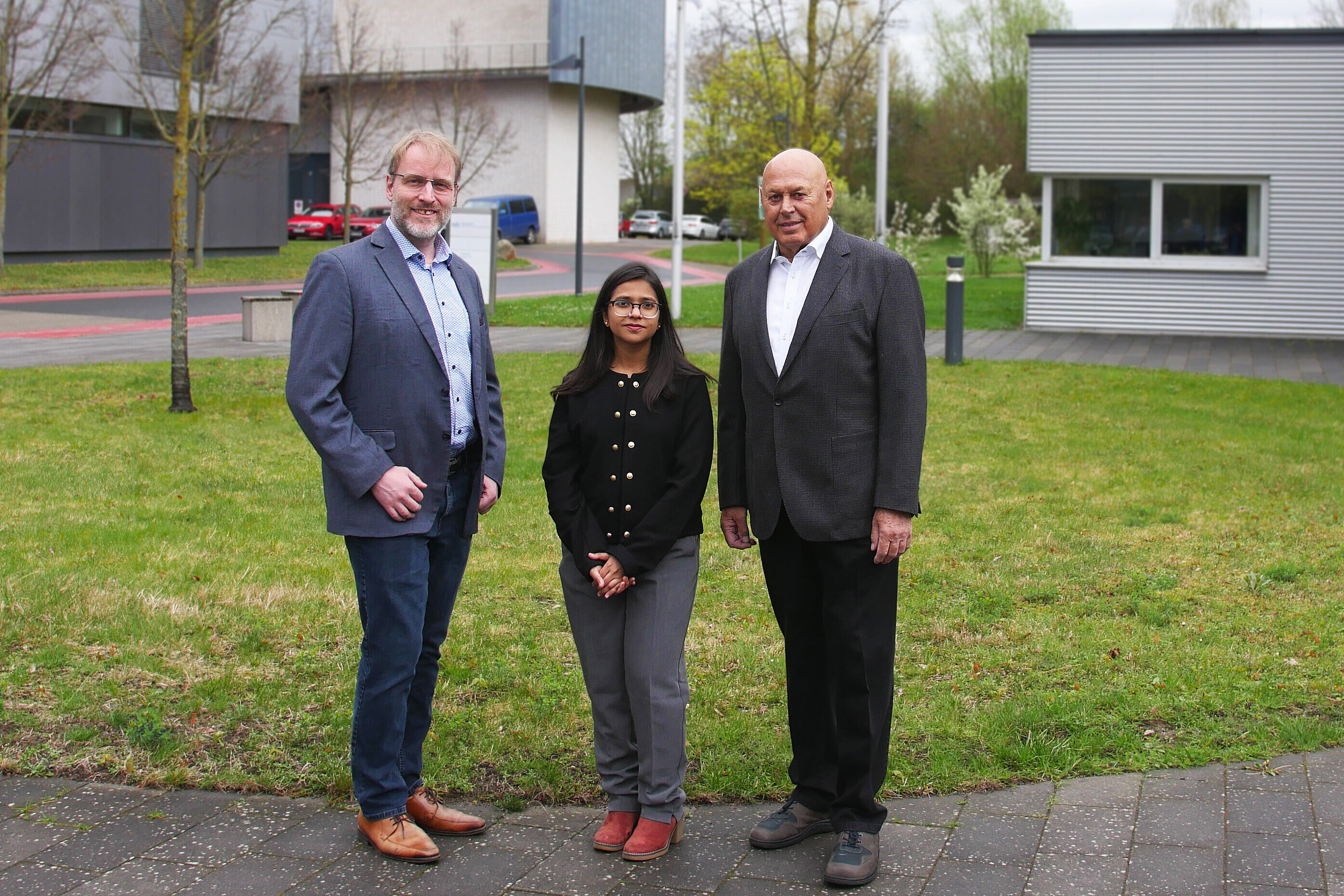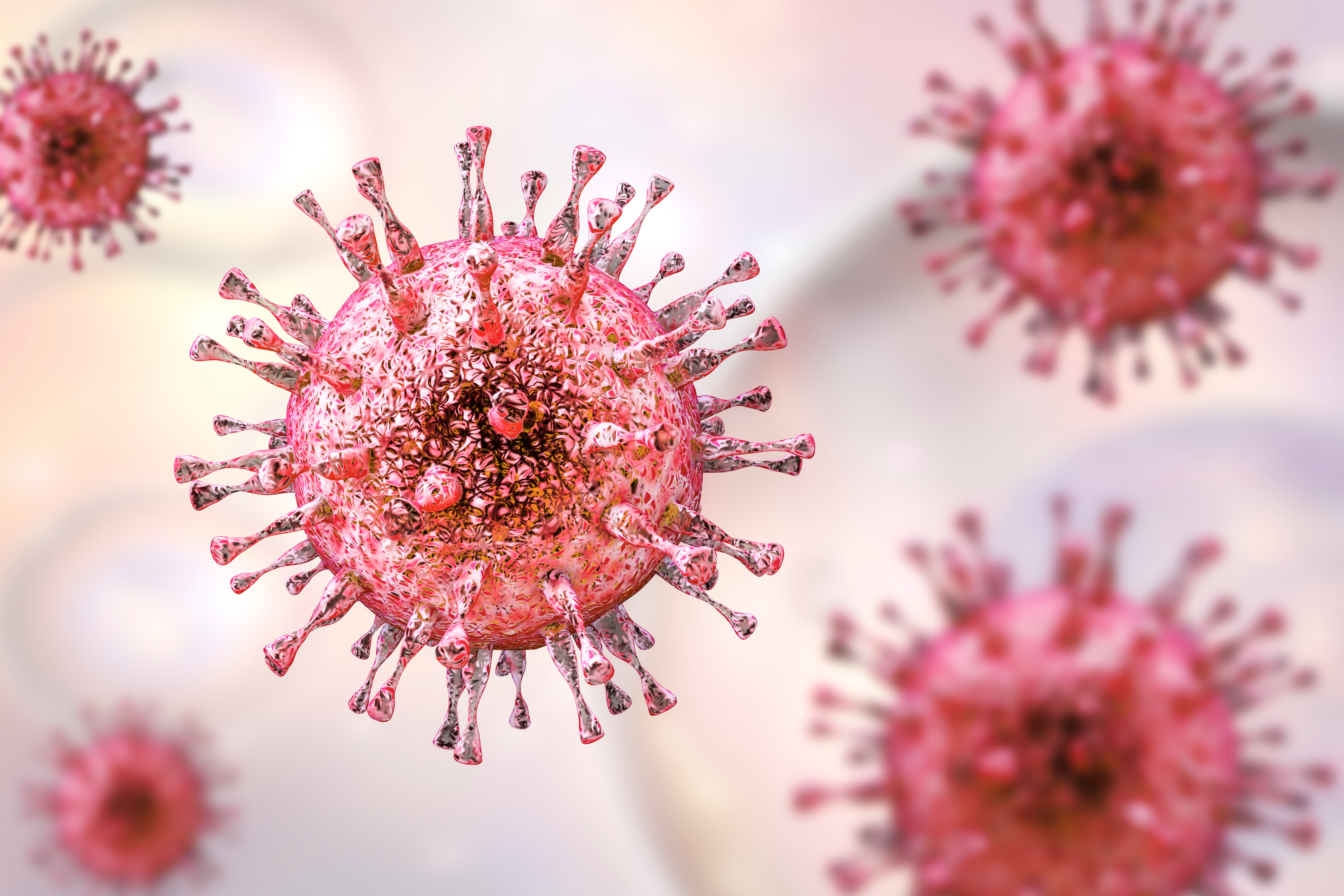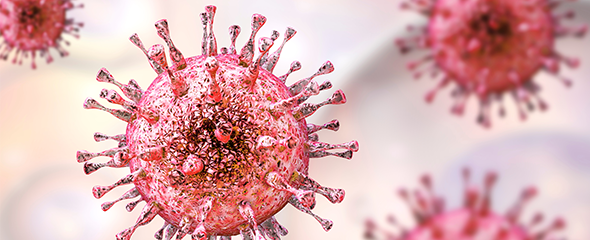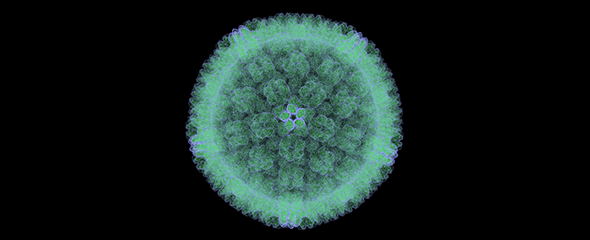The cytomegalovirus (CMV) is a member of the herpes virus family. After the initial infection, which often occurs asymptomatically or with mild, non-specific symptoms in childhood, the virus remains in the body in an inactive stage. Globally, approximately 70 percent of adults are permanently infected with the virus. Normally, the virus is kept in this latent stage by the immune system without an active, symptomatic infection. However, therapies that impair the immune system - such as chemotherapy or immunosuppression following an organ transplant - can disrupt the balance between host and virus.
During their vital cancer treatment, oncology patients are therefore exposed to particular risks from infections. “Leukemia therapy may severely weaken the immune system. This can lead to the reactivation of the latent virus, which causes severe infections of the lungs, liver or brain, for example. CMV infections can also be fatal,” says Luka Cicin-Sain, supervisor of the doctoral thesis, which is now being funded by the Günter Hansmeier Krebsstiftung. Initial infections can also be severe or fatal in patients with suppressed immune systems. Standard antiviral treatment for CMV is not always effective and can be associated with significant side effects. In addition, there is no vaccine available against CMV.
In her PhD project, Adhara Madhuri, MD, is therefore now pursuing a new approach to CMV therapy. Unlike existing antiviral therapies, she aims to stimulate the immune system to fight the cytomegalovirus more effectively. Specific cells of the immune system, the T cells, are isolated from the patient's blood, multiplied in the laboratory, trained to kill CMV-infected cells and then returned. “There are still many unanswered questions about CMV immunotherapy: For example, I would like to find out which viral proteins are particularly suitable for triggering a strong immune response from T cells and whether a combination of proteins might be promising,” says Madhuri. Her PhD supervisor Cicin-Sain emphasizes another challenge: “Individual genetic differences significantly influence the recognition of viral proteins by T cells. T cell-based immunotherapies must therefore always be personalized.” His department is currently involved in a project of the German Center for Infection Research (DZIF) with the aim of developing immunotherapies for different genetic backgrounds.
“Infections that occur during cancer therapy are a common complication in children with oncological diseases. We are pleased to strengthen the HZI's research into immunotherapies against CMV and thereby contribute to improving cancer therapy for children,” says Henrik Klimke, Chairman of the Günter Hansmeier Krebsstiftung. The Günter Hansmeier Krebsstiftung supports research projects and institutions in the Braunschweig region that are specifically dedicated to cancer research in pediatric patients.

![Dr Charlotte Schwenner [Translate to English:] Charlotte Schwenner](/fileadmin/_processed_/6/9/csm_Charlotte_Schwenner_7952cfe0a7.webp)



